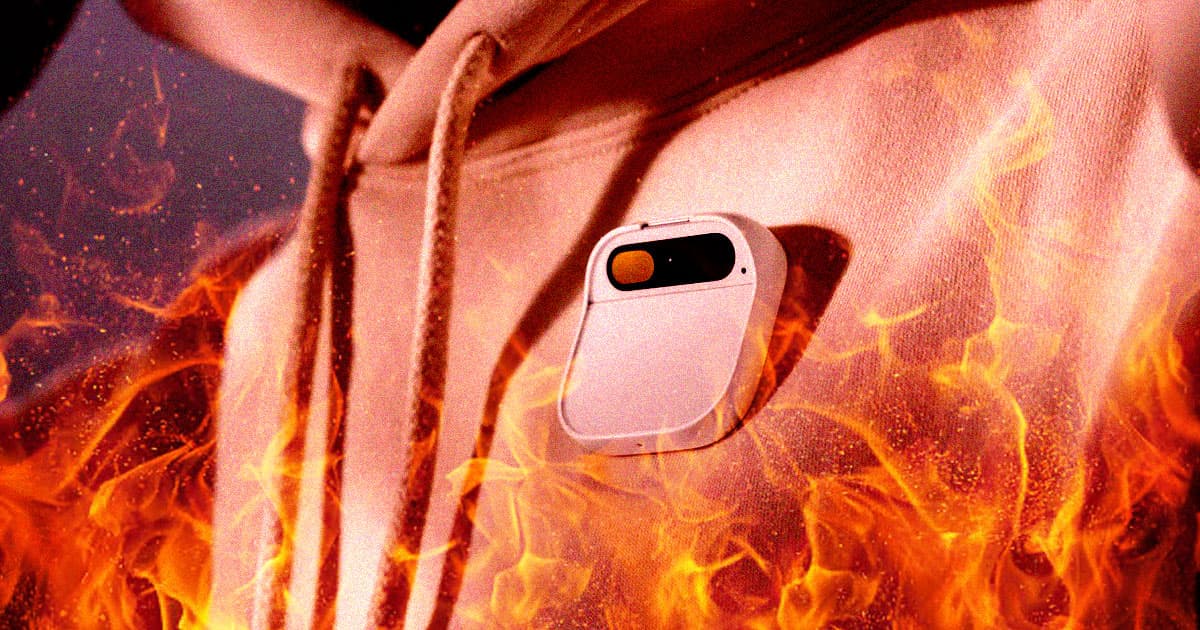Late last year, an AI startup called Humane raised a whopping $100 million for an upcoming flashy gadget called the "Pin" last year.
And after months of testing, the review embargo has finally lifted — and as it turns out, the $700 gizmo, which also requires a $24 monthly subscription plan, is every bit as disappointing as we expected.
It sounds like the device couldn't even get the basics right. As The Verge's David Pierce discovered, interacting with the screenless and lapel-mounted device was an absolute nightmare, failing to even accurately report the current weather.
"And half the time — seriously, at least half — I don’t even get an answer," he wrote in his review. "The system just waits, and waits, and fails."
And it wasn't just The Verge struggling to make sense of the device. Wired called it "too clunky" and "too limited." In its video review, Engadget said that the device "solves nothing and makes me feel stupid." The Washington Post was a little more charitable in its writeup, conceding that "there's a glimmer of a good product here."
The Pin even refused to translate things properly, which was a major selling point used in Humane's marketing.
"Rather than translate things, it would just say them back to her, in a horrible and occasionally almost mocking accent," Pierce found.
In an uncut 20-minute video shared by Inverse's Ray Wong on X-formerly-Twitter, the Pin attempted to message one of his contacts out of the blue after he asked it to buy a copy of the book "The Three-Body Problem."
"No, don't message her!" Wong scolded the device.
Humane was envisioning its device as at least a partial replacement for our smartphones, allowing us to stare at screens just a little less on a daily basis.
It's about the size of an iPod shuffle and mounts to your chest like a lapel pin with the use of a magnetic "battery booster." (Even with a replaceable battery, the device still reportedly couldn't make it through a single day of use.)
Instead of a small screen, the startup opted for a highly unusual "Laser Ink" projector that can shine things onto the palm of your hand.
"The projector’s 720p resolution is crap, and it only projects green light, but it does a good-enough job of projecting text onto your hand unless you’re in bright light, and then it’s just about invisible," Pierce wrote.
In short, the device can't really do much of anything it was designed to do well, if at all.
If there's one common refrain across the reviews we've encountered, it's that the AI Pin is "the textbook definition of a first-generation product," as Wong put it in his review, hinting at better iterations to come.
But whether future versions will be able to solve all of these glaring problems, let alone make for a compelling consumer tech device, remains to be seen. Humane is already struggling to make ends meet, laying off around four percent of its workforce in January, months before the device even started shipping.
In short, it's more or less the experience you'd expect from trying to interact with an AI chatbot while on the go — especially when those lines of communication are broken up with noise, inaccurate speech detection, and a clunky user interface.
It's an extremely expensive device that's simply far too ahead of its time, a frustrating and perhaps fruitless exercise in learning about the limitations of AI that won't result in you magically using your smartphone any less.
"If there’s a lesson here, though, it’s that rather than splurging on a new device that promises to fix our problems we may be better off forcing ourselves to use the ones we have more judiciously," WaPo wrote in its review.
More on the Pin: Remember That Uber-Hyped "AI Pin" Startup? It's Already Doing Layoffs
Share This Article
